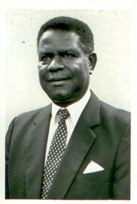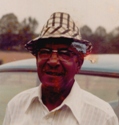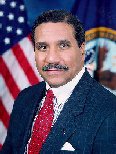
Where is all of the Black people in Scouts? I've been to a lot of different things at the District, Council and National Jamboree and I can count the number of Black kids and adults on two hands. Are Black people "boycotting Scouting" for something I don't know about? Are there some other Black people other than you that you can point out for me? Why don't we see those people?
We are out there, Mom!! My mother asks the same question frequently of me and I provide her the same answer I'm going to give you: First, the number of Black youth in the BSA has been slowing increasing over the years, but not as much as what the BSA nor me would like to see. The BSA in 1998 estimated that two out of ten kids in Scouting are Black. I estimate that their estimation is about half that number, or one out of ten kids. We are there.
What's REALLY alarming to me, however, is the DECREASE in the number of Black adults involved in Scouting. When I was growing up, we had close to fifty thousand Black volunteers and professionals involved in the BSA. In 1998, the BSA estimates that only ten thousand volunteers are African-American. That concerns me as a Black person and as a Scouter. The basic reason is the same reason for the dearth of Blacks in other areas of American life: many Black men are in jails or have chosen to 'drop out' of American life; many Black women are too busy performing their roles as a homemaker and family supporter AND now as "primary breadwinner". Add to this the fact that the BSA has promised and promoted the Scouting program over and over as "the ultimate" to the Black communities and never followed up on their "promises" (which was part of the reason why the BSA instituted the "Deliver the Promise" national program emphasis) which made many in the Black communities upset with Scouting in general; the constant "molestation" issues in the papers hasn't helped things, either; and finally, the BSA doesn't provide a great number of role models for their programming as they used to. The BSA used to be able to point to several successful Black businessmen and women whom were associated with their programs and today, we can only point to a few...and they are NOT involved in Scouting as we would like for them to be.
So, who do I use as positive role models for Black Scouts and Scouters:

|
 |

|
 |

|
 |
 |
Of course, depending on your "viewpoint" or "frame of reference, this list would not be complete without Marion Barry, twice elected Mayor of the city of Washington, D.C.  Although he was arrested, convicted and served time for drug possession, Mayor Barry pushed his way back up to Mayor once again. He constantly credits his Scouting experiences as a motivator toward getting him elected and wanting to represent his people; he states in his bio (and I have no reason not to doubt it) that he became one of this nation's first Black Eagle Scouts in the early 40s while Scouting, like so many other organizations in America, was segregated along racial lines in the South and East. Although he was arrested, convicted and served time for drug possession, Mayor Barry pushed his way back up to Mayor once again. He constantly credits his Scouting experiences as a motivator toward getting him elected and wanting to represent his people; he states in his bio (and I have no reason not to doubt it) that he became one of this nation's first Black Eagle Scouts in the early 40s while Scouting, like so many other organizations in America, was segregated along racial lines in the South and East.
I admire Mayor Barry for his ability to lead and motivate people, Black and White; I do NOT agree with him about the drug stuff. Drugs are negative connections to the African-American (and other!) communities. I pray that he's off whatever it is he was doing, and that he decides to live a little cleaner life! |
There are many other Black men and women whom are involved in Scouting. Many have chosen to keep a low profile, thinking as my Mom feel, that Black men and women have "no place in Scouting...it's for those White boys and those people who can afford all of that stuff..." Totally UNTRUE, Mom. We need Scouting in OUR communities just as much as any other group of people need Scouting -- and for the same reasons. Scouting CAN be made affordable, and CAN be made relevant to the people involved in it...it takes the time and engeries of those volunteers and the professionals supporting them.
An example of a Black man making a difference as a BSA field professional is found in my story about "Bob T", which has been published in several BSA journals but hasn't made it yet to Ebony or Jet (but it SHOULD).
 |
 |
 |
 |
| Home | Next Question |
Previous Question |
The Tree |
Designed by Mike Walton
Created with DiDa!